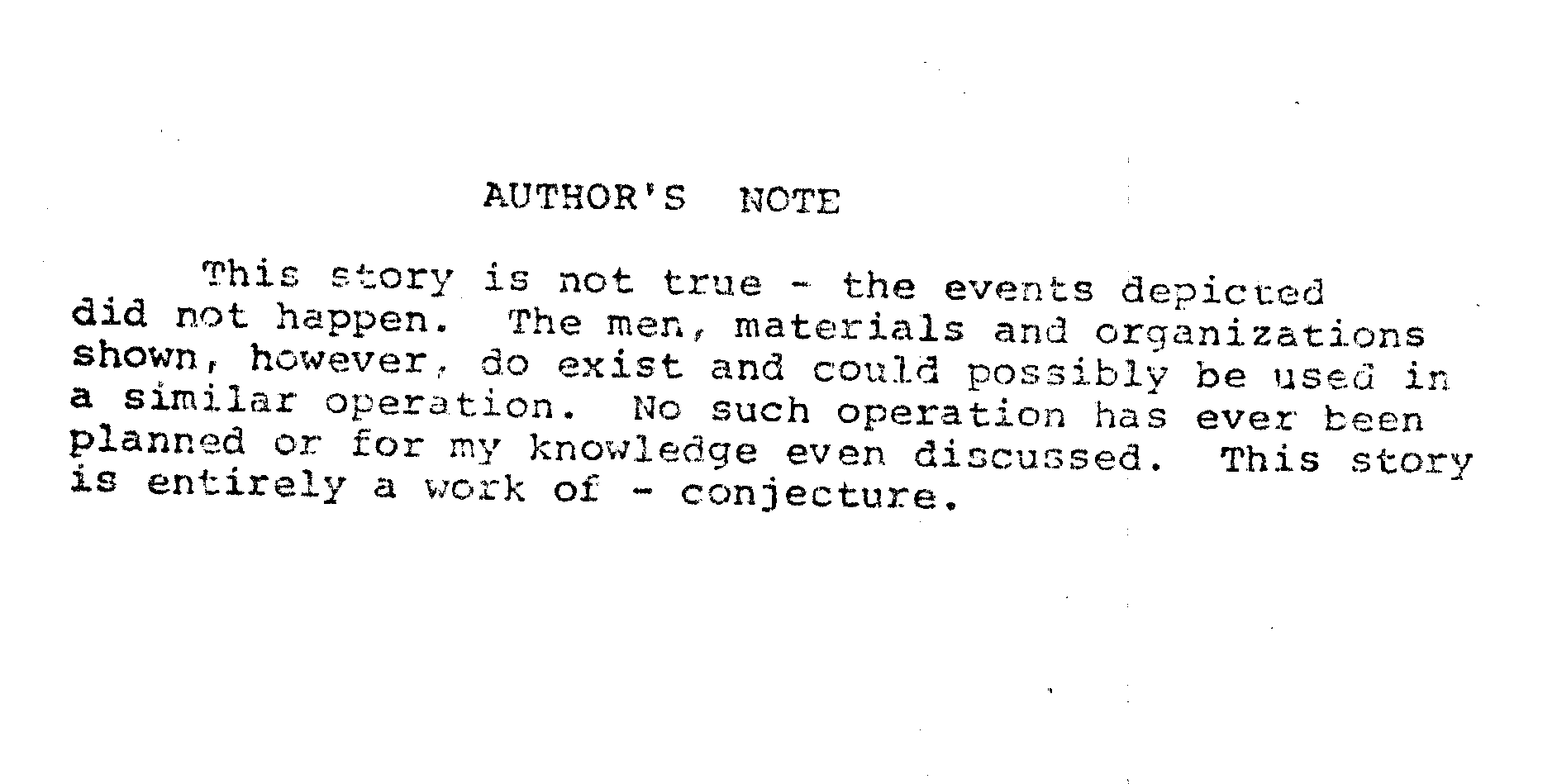 By JOHN MILIUS (1976)
By JOHN MILIUS (1976)
Undoubtedly one of Hollywood’s most intriguing “unmade” screenplays, EXTREME PREJUDICE was described by its author as “a right-wing Costa-Gavras film.” Intended to be lensed in 1976 by John Milius himself (who made BIG WEDNESDAY in its place), this unlikely epic wound up being heavily rewritten for a 1987 Walter Hill actioner that bore little-to-no relation to Milius’ script—reviewed here in a 141 page second draft dated August 25, 1976 (the initial draft was reportedly 20 pages longer). Being a Milius script, it’s eminently readable, with engaging descriptions (a screenwriting instructor once told me it was a bad idea to include excess description in a screenplay “unless you’re John Milius”) and a good balance of dialogue and action, as well as a more provocative angle than is standard for Milius. Still, there’s a reason Walter Hill changed so much of this script, which frankly needs work.
The premise is deeply alarming and contains a lot of troubling questions about military overreach, questions that Milius, despite his love of all things Armed Forces, makes sure to bring to the forefront. The fact that the setting is Uvalde, Texas, the site of a violent event that occurred several decades after this script was written, only heightens the upset.
The early pages introduce us to a branch of the U.S. Army Special Forces consisting of ten men, all of whom are officially classified as killed or missing in action, and two female Naval Intelligence officers. Identified only by their profession (“Medic,” “Logistics,” “Light Weapons,” etc.), this dirty dozen is tasked with carrying out Operation Columbus, involving the clandestine takeover of Uvalde as a cover for the elimination—as in: “Terminate with extreme prejudice”—of terrorist cadres operating in the community. Following this lengthy preamble we’re introduced to the script’s ersatz protagonist, a ranger named Bill Jacobs (Jack Benteen in the flick).
It takes until page 12 for Jacobs to make his debut appearance, which brings up the first and most pressing of the script’s problems: it lavishes far too much time on its antagonists and not nearly enough on its hero. The latter may be an upstanding sort “Reminiscent of a stronger national fiber,” but he can’t compete with the Special Forces men, all of whom “radiate a clipped, lethal efficiency that is the mark of the elite professional soldier,” for Milius’ attention.
Another problem: Operation Columbus, which entails having its members integrate themselves into Uvalde by posing as civilians and taking regular jobs, seems a huge waste of effort given that the takeover of the town comes about simply by blackmailing the mayor, via surreptitious photos of him and his mistress.
 Yet the script is vital as a Rosetta stone for future Milius projects like RED DAWN and FLIGHT OF THE INTRUDER, both of which integrated elements of EXTREME PREJUDICE (as did APOCALYPSE NOW, which famously appropriated the “Terminate with extreme prejudice” line), and as a damn good read. Milius makes sure that, despite its complacency-shattering political overtones, the script contains plenty of action: there’s a diverting page 65 raid staged by the Special Forces men on a barracks in Mexico that entails mass carnage (and was made to conclude Walter Hill’s film), and a great deal of suspense in the third act, in which Jacobs comes to suspect (correctly) that he’s being surveilled, growing increasingly paranoid as the script devolves into a borderline horror movie. That, I say, is an element Walter Hill should have kept intact.
Yet the script is vital as a Rosetta stone for future Milius projects like RED DAWN and FLIGHT OF THE INTRUDER, both of which integrated elements of EXTREME PREJUDICE (as did APOCALYPSE NOW, which famously appropriated the “Terminate with extreme prejudice” line), and as a damn good read. Milius makes sure that, despite its complacency-shattering political overtones, the script contains plenty of action: there’s a diverting page 65 raid staged by the Special Forces men on a barracks in Mexico that entails mass carnage (and was made to conclude Walter Hill’s film), and a great deal of suspense in the third act, in which Jacobs comes to suspect (correctly) that he’s being surveilled, growing increasingly paranoid as the script devolves into a borderline horror movie. That, I say, is an element Walter Hill should have kept intact.
